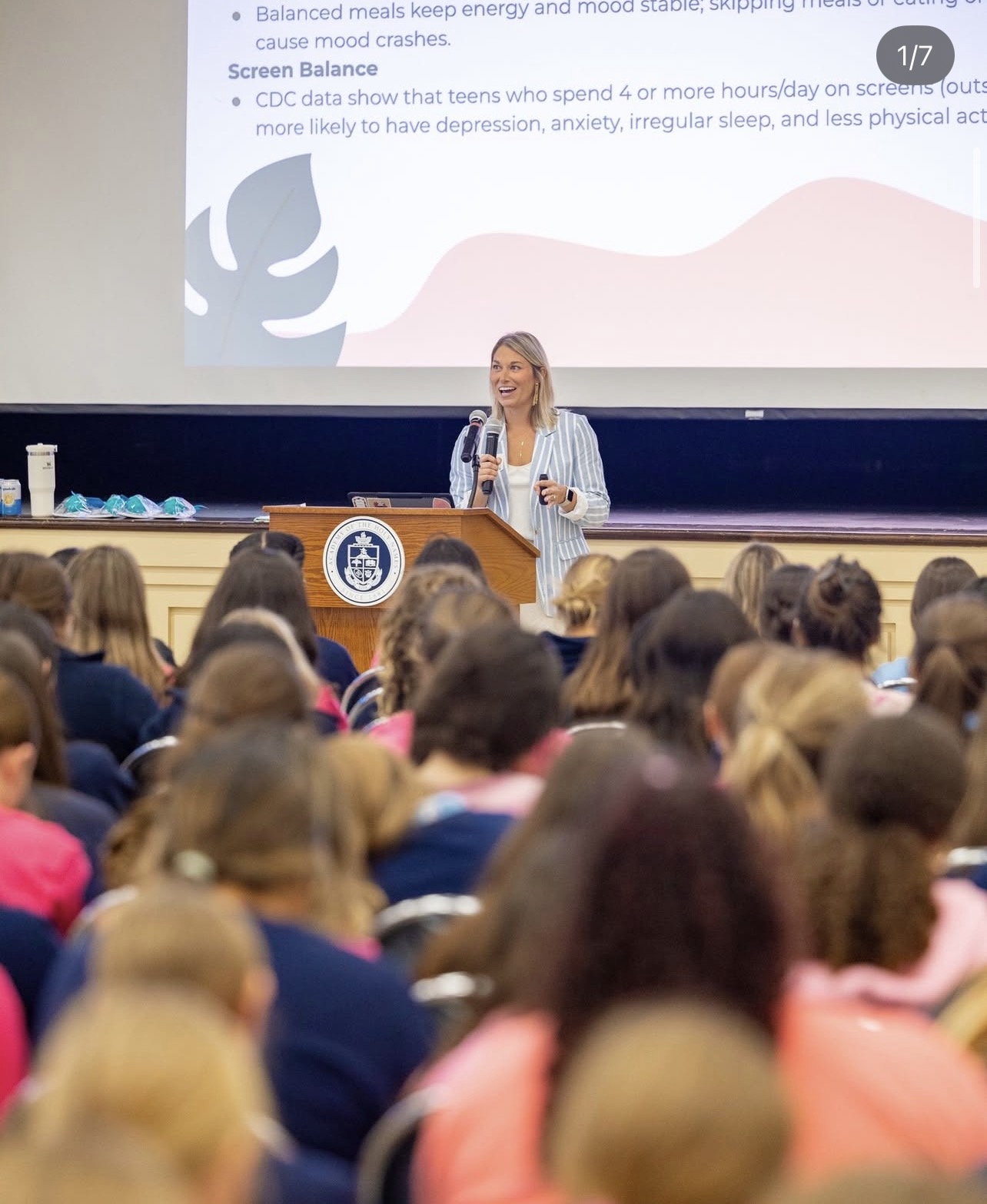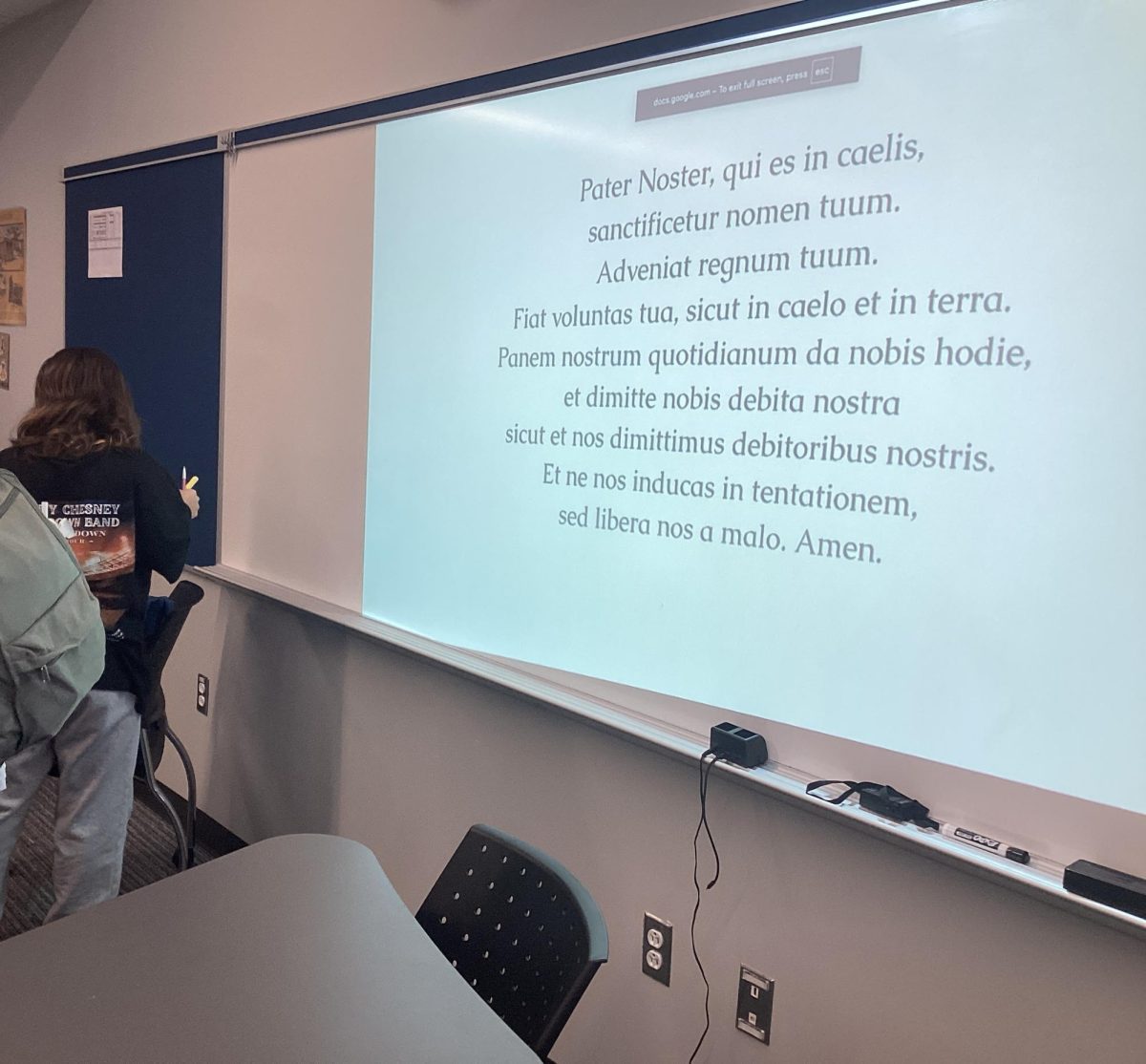On October 1, 2025 student wellness club brought in Camille Myers and Mikayla Drymond, licensed therapists from Audra Walsh Psychology Group, to share their expertise on the topic of mental health, specifically on how to take care of our minds. In their presentation they touched on two main topics: Proactive tools for mental health awareness and how to cope with stress and anxiety.
According to her bio, Camille Myers is a licensed Psychologist with a Bachelors and Doctoral degree. She earned her Bachelors from the University of Tampa and her Doctoral Degree in School Psychology with a specialization in School-Based Mental Health from the University of South Florida. Myers focuses on supporting students who feel overwhelmed by social and academic pressures. She helps them by teaching the students to manage anxiety, build resilience, and find balance.
Mikayla Drymond is also a licensed Psychologist with a bachelors, a Masters and a specialist degree in School Psychology with a specialization in School-Based Mental Health. Drymond got her Bachelors from the State University of New York and her Masters and Specialist degree from the University of South Florida. She mainly focuses on helping teens with anxiety, social difficulties, and functioning concerns. She gives her clients cognitive based behavioral strategies to help them build social skills, manage their symptoms, and to help them thrive in any setting they may find themselves.
During their presentation Myers and Drymond started by showing how to identify mental health concerns and some background regarding what is necessary for a good mental mindset. 1 in 5 teens experience mental health concerns with girls reportedly having a higher chance of developing these concerns. To better understand what makes up a good and bad mindset Myers and Drymond mentioned Abraham Maslow’s hierarchy of needs.

At the bottom of the hierarchy, Maslow puts physiological needs. Physiological needs are things like sleep, nutrition, movement, and screen balance. While these are very important elements of life, they are the bare minimum for an enjoyable life.
Next on the hierarchy is safety. When we feel happy we also want to feel safe. Feeling safe is also one of the bare minimum requirements alongside physiological needs to keep a healthy mindset.
After safety Maslow put sociability on the hierarchy. After our physiological needs and our need of safety is met then we need to account for the need of love and acceptance from society. When we are accepted by others it can help secure us in the next level of the hierarchy: self esteem.
As we climb the pyramid the more important the needs get. Self esteem is very important to mental wellness because to have a good mindset, we need to have a good perception of ourselves. As soon as we accept who we are the sooner we can work towards a positive mindset.
Lastly, the top of the pyramid is self-actualization. Self actualization is a deeper, more meaningful version of our self esteem. Once we have accepted who we are and gain confidence in ourselves, we need to use this knowledge and confidence to become the best version we can be.
Using this pyramid we can assess our mental state and recognize potential problems. Once we are aware of the specific problems we can start trouble shooting and start to use coping mechanisms to deal with the anxiety we are under.
Some of the most prevalent examples Myers and Drymond included pertained to what we should and shouldn’t do. We shouldn’t ignore stress or compare what we are feeling to others. We should acknowledge and if necessary change the way we think and the things we do. We also need to remember that not all of our thoughts are true. We may think negatively about aspects of our life when in reality we shouldn’t be thinking negatively about these things at all. Along with this we should also focus on time management. Having a productive yet restful schedule can greatly decrease stress. The last method we could use to destress is to use calming methods like deep breathing, grounding, and visualization of safe spaces.
“The goal of the Wellness club is to help the student body manage the struggles of the school year and to give information about wellness options. We are working to help inform students about anxiety and wellness methods through guest speakers and hopefully some flex presentations.” says Melanie Port (27′) co-president of Student Wellness.
Myers and Drymond were brought in by the Academy’s wellness club to help students identify and cope with the social and academic stress that this school year has brought. The wellness club is looking to bring in more guest speakers to talk about wellness and to inform academy students about things like sleep and coping with anxiety, showing how these things can greatly increase one’s mood and mental state. Be on the look out for flex spaces, bake sales, and guest speakers organized by the wellness club.








